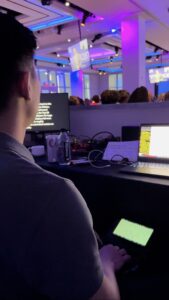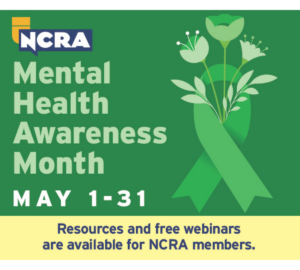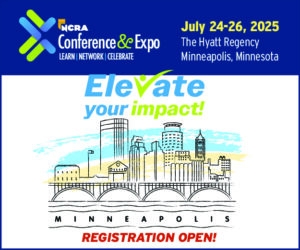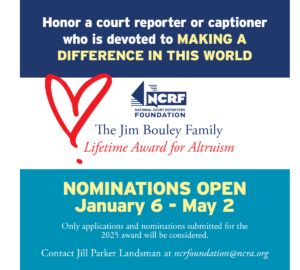Adam Finkel, NCRA’s assistant director of government relations, and Darlene Parker, RPR, director of steno captioning for the National Captioning Institute, presented a session called Captioning Quality Matters to attendees at the Association of Late Deafened Adults Convention held Oct. 8-12 in Norfolk, Va. An NCRA booth was also on display on the event’s exhibitor floor and was staffed by Brandon Schall, the association’s government relations specialist, who answered questions and shared information about NCRA’s work.
The captioning quality session provided attendees with an extensive history of captioning as well as information about broadcast captioning and the regulations set by the Federal Communications Commission regarding new guidelines that will be enforced on Jan. 15, 2015. Finkel and Parker also discussed CART captioning and explained how the Americans with Disabilities Act impacts this type of captioning that is provided to members of the deaf and hard-of-hearing community.
“NCRA and the National Captioning Institute were well received by attendees at the session,” said Finkel. “The presentation focused on how broadcast captioning occurs and NCRA’s role in developing the captioning quality standards that were recently adopted by the FCC.”
Attendees also learned about the extensive training involved in becoming a broadcast or CART captioner, as well as the difference between live captioning and the captioning of pre-recorded events.
Other topics discussed included how breakdowns in the process of live captioning can lead to poor end results, how many captioning companies have reported being pleased with the FCC regulations set to take affect, and resources for learning more about captioning, including TheJCR.com.
Finkel and Parker left the audience with several key points including the four that are commonly used to measure captioning quality – accuracy, synchronicity, completeness, and placement of captions. In addition, they noted that pre-recorded programs that are not captioned by a live captioner tend to be nearly 100 percent accurate.
Finkel also urged attendees to help ensure new FCC regulations are being met and that the quality standards of captioning are being met by providing feedback to the FCC and their local television stations. He also suggested attendees get involved with local ALDA chapters and meet with their local television and cable stations.
“The audience of between 30 and 35 attendees was engaging and thanked NCRA for working alongside the many disability rights groups to ensure greater access to broadcast and CART captioning,” Finkel said.











